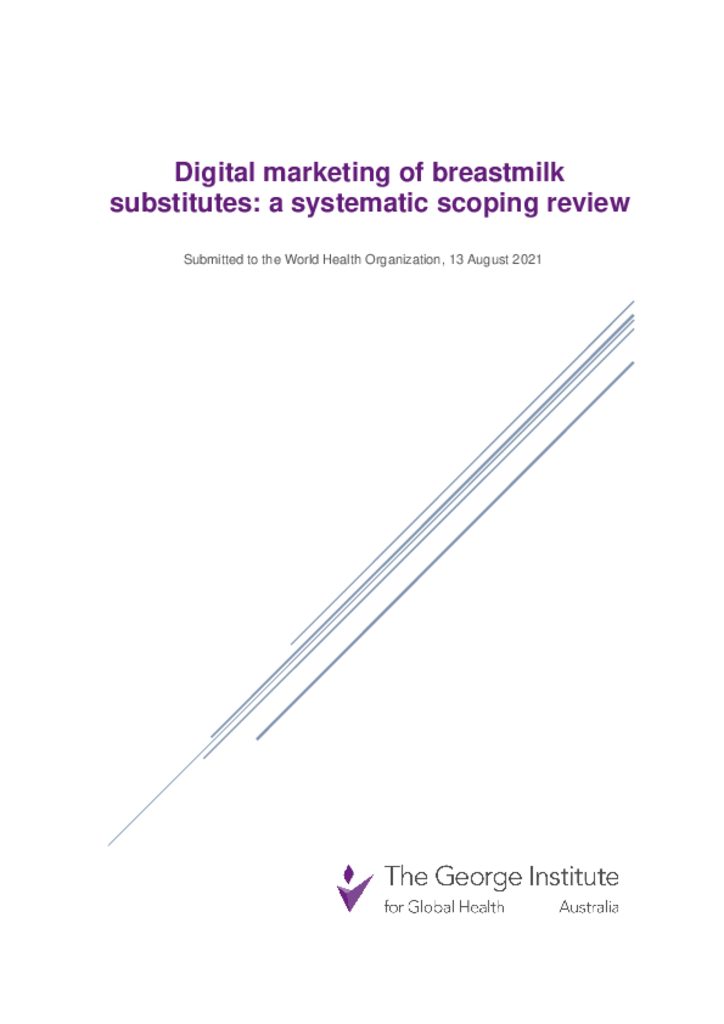
Digital marketing of breastmilk substitutes
Worldwide, too few children are breastfed. Commercial promotion of breast-milk substitutes such as infant formula and toddler milks is one factor undermining breastfeeding practices globally.
The International Code of Marketing of Breast-milk Substitutes (BMS) was adopted by the World Health Assembly to protect and promote appropriate infant and young child feeding in 1981. While progress has been made in many countries, challenges to full and effective implementation remain. Over the last two decades, digital marketing practices that were not yet conceived when the Code was written have accelerated in use, reaching women and their families with messages that undermine breastfeeding practices.
In 2021, The George Institute was commissioned by the World Health Organization to conduct a systematic scoping review of academic and grey literature to understand the scope and impact of digital marketing of BMS.
This work has recently been published in Current Nutrition Reports (Digital Marketing of Breast-Milk Substitutes: a Systematic Scoping Review (springer.com)) and has already been cited extensively in the World Health Organization’s Report on the Scope and impact of digital marketing strategies for promoting breastmilk substitutes (who.int). The Report will be presented at the seventy-fifth World Health Assembly in May 2022, where it is anticipated that Member States will consider the need for further guidance from WHO to protect women and children from digital marketing of BMS.
By gathering the evidence on the topic in one place, the review builds a foundation for future work by the WHO, its member states and other stakeholders to help address the problem of harmful marketing of these substitutes by manufacturers and social media companies alike.





